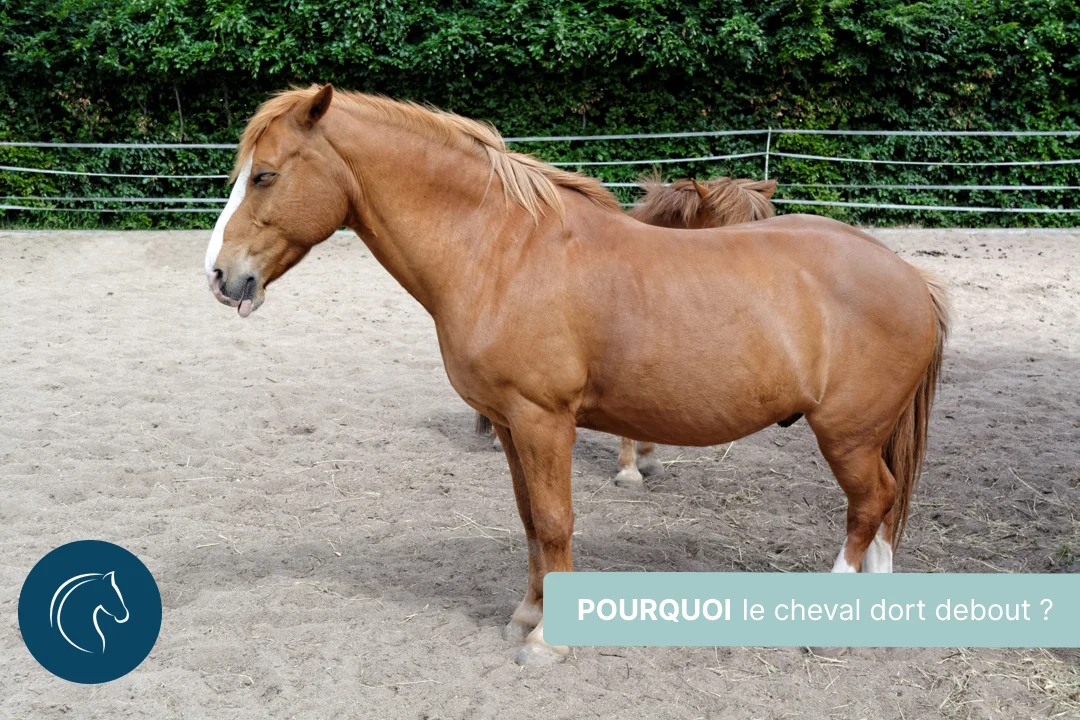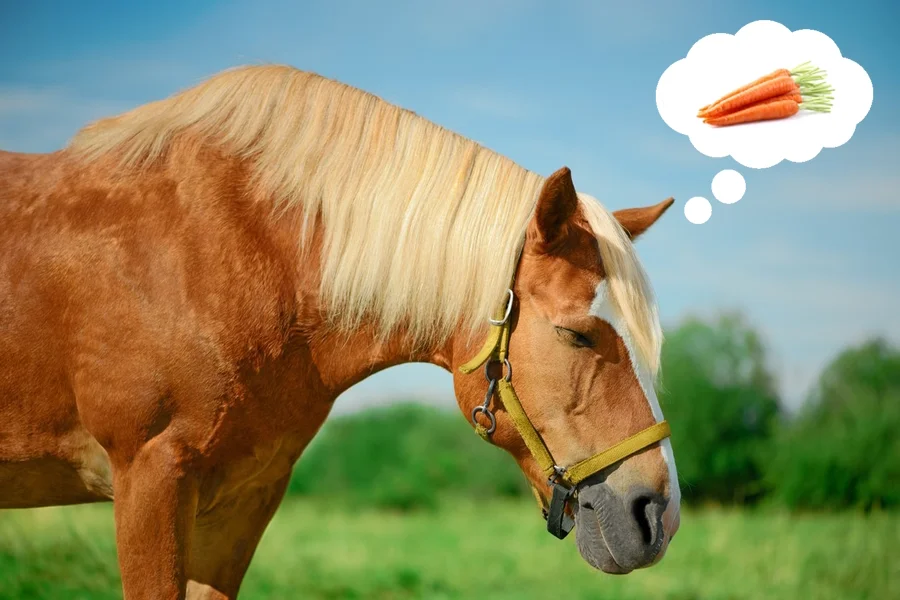We often hear that horses sleep standing up. Is this a preconceived idea or a proven fact? The reality is a bit more complex than that. So, at Lore & Science, we examine for you the truth about horse sleep. Like all mammals, equines need quality sleep to stay healthy. In this article, find our best tips to help your horse rest.
The horse's ability to sleep standing up
And yes, horses are really able to sleep standing up! In reality, it will never be REM sleep. When they are standing, horses are in a light sleep or drowsiness phase, and more rarely in a deep sleep.
It is important to remember that, in nature, horses are prey animals. They have evolved to be constantly on the alert for potential dangers. This means that they have developed the ability to sleep standing up so that they can quickly escape in case of danger. Standing up, they can also give the illusion to potential predators that they are awake. Their hearing abilities remain alert in this position.
Horses can sleep standing up or lying down, depending on their environment and safety level. True REM sleep, however, can only occur when the animal is lying down.
How can a horse sleep standing up?
Like humans, horses' muscles relax when they fall asleep. However, a peculiarity of their joints allows them not to collapse during a nap while standing. Their kneecap is able to lock on a relief of the femur, which maintains their balance without soliciting important muscular contraction. Thus, this mechanism called "locking of the knee joint" allows them to rest without necessarily going to the lying position.
It will be noticed that after about ten minutes, the animal will come to change slightly its position to lock another support leg in turn.
How to help your horse sleep well?
As you can see, it is essential to provide a suitable environment for your horse to sleep well and maintain good health.
Here are our top tips for doing so:
- Provide a quiet environment (without loud noises), where he feels safe.
- Make sure your horse has a comfortable bed to rest in. Straw or shavings beds can provide excellent comfort for your horse.
- Give your pet enough room to lie down and get up without difficulty.
- Allow him to be around his peers to feel reassured. Horses are social animals that live in groups in the wild. Even in the stall, make sure he gets along with nearby horses.
- Avoid feeding your horse late in the evening, as this can disrupt his sleep. Horses need time to digest their food, so try to feed your horse a few hours before resting.
Helping a stressed horse sleep well
Is your horse particularly anxious? In spite of all your care, he can't rest enough? Natural solutions exist to help him.
You can supplement your horse's diet with clinically proven herbal remedies. For example, our stress-relieving synergy of medicinal plants Stress Less is perfect for calming and relaxing stressed horses.
Use this synergy as a cure to relieve an anxious horse, or to accompany him in case of change of environment or travel. The natural and quality ingredients are all grown in France according to the strictest standards. You will be able to benefit from the soothing effects of 5 medicinal plants with de-stressing virtues. Calming and offering induction to sleep.
What are the different sleep phases of the horse?
As you will have understood, a horse cannot sleep only standing up. This faculty exists to allow him to rest and regain his strength in contexts where he cannot allow himself to relax his vigilance completely. Let's develop the horse's sleep needs to better understand how to accompany him in his rest.
A lower sleep requirement than humans
Do you find that your horse or mare doesn't sleep much? Rest assured, equines need fewer hours of sleep than you do. On average, we estimate their daily need to be between 5 and 7 hours. Of course, this figure changes depending on the age of the animal. Foals and young growing horses will sleep almost 12 hours a day, while older horses will often settle for a few hours. In addition, horses are less subject to the circadian cycle (i.e. the alternation of day and night). They will tend to have short sleep cycles between 8pm and 5am, then between 12pm and 2pm on average.
Characteristics of slow wave sleep in horses
Slow Wave Sleep(SWS) is the non-REM sleep phase of the horse. It is a sleep phase that the horse can perform standing up.
This phase results in a slowing down of the respiratory and heart rhythms, and a consequent decrease in brain activity.
Physically, the animal will have its head down, eyes half-closed or closed and a regular alternation of the support leg.
It is also possible for horses to reach this sleep phase while lying in a "cow" position, i.e. when the forelegs are folded under the chest.
The paradoxical sleep of the horse
On the other hand, the REM sleep of the horse, which is essential for its good health, can only take place when the horse is lying down.
During this phase of sleep, brain activity is intense, while breathing and blood circulation are reduced. Rapid movements of the eyes, which remain closed, can be observed. At this time, muscle tension is too low to allow standing.
Physically, the horse will be lying on its side with its limbs extended. As mentioned above, this is a very vulnerable position for the animal. Therefore, only a favorable context will allow your horse to rest. However, REM sleep is essential for good health, for muscle recovery and for the prevention of injuries due to fatigue.
In summary, horses have evolved to sleep upright due to their prey nature and their constant need to be alert for safety. They are able to maintain this position through a leg lock system that allows them to rest while being ready to flee if needed. However, horses also need to sleep soundly to recover energy and maintain health.
By caring for your horse and allowing him to sleep properly, you can help maintain his overall health and well-being.
Need advice on sleeping with your horse? Leave us a comment ↓















